Because I’ve been traveling so much and fighting off a benign but annoyingly persistent respiratory illness, I’ve been late to the table writing about the eclipse.
But I was one of many folks who drove several hours to the totality zone for a few minutes of day-time darkness and a gaze at the celestial wonder of the corona, which we shared with strangers in a community park in a small town in northern Vermont. 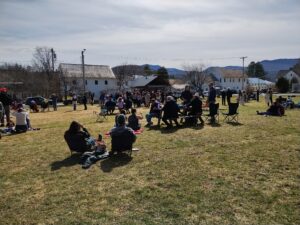 Things seemed pleasantly normal in the hour before the big event. People donned eclipse glasses to sneak views of the disappearing sun, children ran through the grass playing, and adults waited in lines for free pizza cooked in the community stone oven or to silk-screen a t-shirt as an Eclipse Day souvenir.
Things seemed pleasantly normal in the hour before the big event. People donned eclipse glasses to sneak views of the disappearing sun, children ran through the grass playing, and adults waited in lines for free pizza cooked in the community stone oven or to silk-screen a t-shirt as an Eclipse Day souvenir. 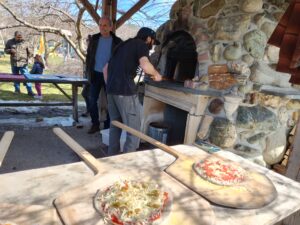 But when totality hit, something shifted in the energy. There was a hush among the crowd, a kind of collective “wow.” My eclipse glasses now dark, I was nervous about viewing the corona with unprotected eyes, but there it was, eerie and other-worldly, the tiny ring of light flaring in asymmetrical bursts before settling to a steady glow like a small spark of hope.
But when totality hit, something shifted in the energy. There was a hush among the crowd, a kind of collective “wow.” My eclipse glasses now dark, I was nervous about viewing the corona with unprotected eyes, but there it was, eerie and other-worldly, the tiny ring of light flaring in asymmetrical bursts before settling to a steady glow like a small spark of hope.
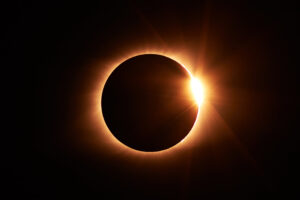
Jongsun Lee, CC BY 3.0 <https://creativecommons.org/licenses/by/3.0>, via Wikimedia Commons
Then the moon moved away and a crescent of sun reappeared. And again, I could feel the crowd’s energy shifting, a waft of ebullience, giddiness from having lived through a bewildering darkness and come out the other side.
What struck me then was not the moon, but the connectedness I felt to all these strangers. There are so many metaphors I could make out of this, it’s hard to know where to begin. But in these times of constant fractiousness, there was a poignancy in that moment that felt important, a sense of all of us humans as anthropological creatures who, deep in our DNA, know how to co-exist, especially under the awe of something so much greater than ourselves. And maybe I’ve been “moonstruck,” but I can’t stop hoping that there might be away out of a darkness that makes “othering” human beings and then harming those “others” acceptable.
So I’m offering this poem from Here in Sanctuary–Whirling as a starting point for contemplation. And I also invite all of us to take some time to close our eyes and envision the metaphor of the sun reappearing after totality. What can each of us do to bring back the ebullience and giddiness that comes with connection?
I DO NOT KNOW
–D. Dina Friedman
Why the wind is so fierce today. Why some people die
and others recover. Does a tornado choose its targets?
Is there a blueprint somewhere with the secret path
of my life mapped out? Will this trail I’m on
connect with the ridgeline, or will it keep crossing
the same stream? How do I get to the bunker,
and what’s hidden there now that the army no longer has it?
I do not know how dirt feels to a carrot root, or to my brother
six feet under. Is he able to read the prayer books
placed on his coffin through some double miracle
of semi-resurrection and dyslexia cured? What does it feel like
to a dyslexic when letters leave their prescribed places?
Why do bodies compartmentalize into people who love each other
hating the people across the river, who love each other
and hate the people across the river? Why do we have to teach toddlers
to share sand-buckets? Why don’t they do it naturally?
Why don’t we do it naturally?
Why don’t we do it?
In Here in Sanctuary–Whirling, Querencia Press, 2024.
Orginally published in Silkworm 15.

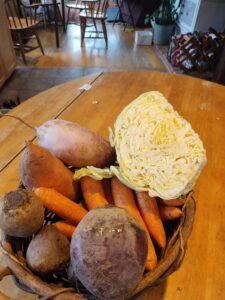
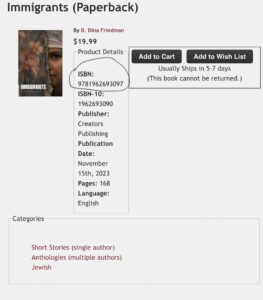 and that didn’t happen until six weeks after the book was published. In the meantime, I was grateful to the bookstores who were willing to take copies of
and that didn’t happen until six weeks after the book was published. In the meantime, I was grateful to the bookstores who were willing to take copies of